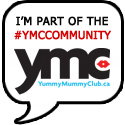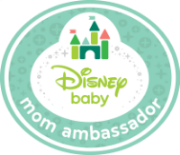I grew up at a time when the internet was just becoming a "thing." When I was 13, we got our first family computer in our home and one year later, my Dad connected it to an internet service. At the time, nobody really knew or talked about the real dangers regarding privacy online, or how to protect yourself. I was always told by my parents never to give out personal information like my address, phone number or my real name. But young teens can be careless... I was careless. I have stories -- many stories!! -- that I won't share today. Needless to say, things were different back then. There was no Facebook, Twitter, Youtube, or Instagram. Social Networking consisted of online forums and chat rooms. For a while, there was no such thing as a profile picture. Nobody had a webcam.
Fast forward to 2013 and everything is drastically different. Social Networking has become a huge part of a person's life and teens especially get caught up in over sharing. I worry for these kids! I KNOW the kind of trouble I used to get into, and I can only imagine if the technology available now was available back then. My kids are too young to be involved in this yet, but as they get older, my biggest concern is their access to websites like Facebook, Twitter, and whatever will come next -- because 10 years from now when my little girl is 15, I'm sure there will be something "bigger" and "better."
So what can a parent do to protect their kids from the dangers of online predators? There are a few simple precautions everybody can take to stay safe online, starting with securing your Facebook profile. Remember that your network is only as safe as the friends you allow in it - so only add people that you know and trust in person. Follow these tips to make sure that you're doing everything you can to keep social networking online a fun and SAFE activity for you and your family!
1. Don’t give too much away...
Be careful how much you give away about yourself in your “About” profile (on the far left of your profile page). The more you add, the more an identity thief can learn about you straight away.
Many people like to say as much about themselves to make them seem more interesting. Resist this, your friends know how interesting you are! So no clues to your home address, mother’s maiden name, age or relatives should be given. You can add your phone number but this can be locked to
friends only or even just yourself and Facebook. It can be useful for Facebook to know your mobile number as they can use it to alert you of suspicious activity.
2. Keep your private stuff private
Facebook gives you the option to control your privacy settings, although by default it opens up your info to more or less anyone. So, let’s look at Facebook’s Privacy Settings in detail. These are found under the arrow at the far right of the Facebook window. Click on the arrow and then click the Privacy Settings tab. This opens up a menu bar that governs what Facebook can do with the information it holds about you.
3. Who can see your timeline?
Now go to Timeline & Tagging. This allows you to determine how much or how little of your timeline is seen by others and whether you want to be “tagged” or not.
4. Who can access your personal data?
This set of options is probably the most important on Facebook as it allows you to control what third parties can access to your Facebook profile
5. A Facebook friend is not forever
Unless you are using Facebook for marketing purposes, think about the actual ‘friends” you really want to connect with. For example that guy who you kind of knew in the your first dorm room? The random woman you once met on holiday. Do you have any idea what they are doing now? Are they trustworthy? When as the last time you heard from them? You get the picture. A little pruning of the Friends list is a good idea every now and again. One more tip, don’t publicly announce holidays or other absences on Facebook and use Facebook email to communicate directly wth friends.
6. Set the controls on YouTube
This deserves a special mention simply because of the popularity of the video sharing site among teenagers. Like Facebook, Google states that no one under 13 should use the site. However the safest bet is to set up a child user account which will block any inappropriate content. You can also turn off comments to prevent your kids being abused or bullied by other users and stop them from doing the same. A quick review of the comments on virtually any YouTube video will demonstrate how nasty these can be – a practice known as “Trolling"
It's worth noting that ESET also offers a Social Media Scanner that can scan your profiles for malicious links and viruses.
Another issue we often have to worry about with the newest gadgets and laptops is theft. ESET offers incredible (honestly!) anti-theft protection software . I tested it out personally with my own computer, and the program will use the laptop's camera to snap a photo and then email you with the photo of the person using it, as well as web history showing you what sites they are visiting and any activity they are doing with your device. Always remember to password protect your device, backup your data and to keep all sensitive data either encrypted or on an external device that can not be accessed. To find out more about ESET's tracking software, go here.
So now that we've covered all of this, how would you like to try out ESET for yourself??? PTPA is giving away a subscription to one lucky person! You can enter here:
a Rafflecopter giveaway
*Disclosure: I have been selected as an ESET Brand Ambassador by PTPA Media Inc. I have received compensation for this post, but all opinions are my own.































Online security is important to protect against viruses, spam and child predators.
ReplyDeleteSecurity for users plays a vital role in the increasing popularity of any social media. People prefer only trustworthy sites. The tips you have shared are very useful in securing the information on a social media. Thanks for sharing useful article.
ReplyDelete